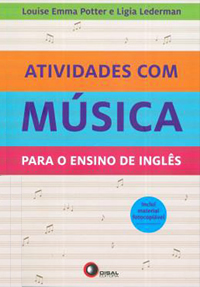By - Jack Scholes

Inspirational quotations can be an extremely effective tool to boost students’ confidence and self-esteem and improve teaching and learning.
They can be a rich source of additional language practice in the classroom and cover an incredible wealth of subjects and topics.
Here are just a few very practical suggestions.
1. Print your favourite messages on to different coloured cards and laminate them so that you can use them many times and/or invite the students to illustrate them and make posters. Use the cards or posters to decorate the classrooms, or even better, the whole school and change them frequently so that students never know which quotations they are going to see where. Try sticking some on the ceiling and see what happens! All the students are guaranteed to read them out of curiosity. If you need to change the pace a bit during the lesson, tell the students to look up for three minutes and try to memorize as many messages as possible.
2. Scatter lots of different cards with quotations on the floor and ask students to wander round, read the messages and pick up the one that appeals to them. They discuss in pairs why they chose the card and what it means to them and then report back to the group. They then stick their cards on the wall.
3. Quotations are ideal to keep in your ‘grab bag’ of activities to use at the beginning of class as warmers, at any point during the lesson to change the pace, or as fillers. Ask students to explain the meaning of the messages. They can also discuss, agree, disagree, try to persuade the others, or even use the ideas for a formal debate. Explaining the humour of a particular quote is especially challenging. For example:
African proverb
4. To encourage students to write, try the following activity. First of all, show them a short message, for example –
People are like stained-glass windows.
They sparkle and shine when
the sun is out, but when darkness sets in,
their true beauty is revealed
only if there is a light from within.
Elizabeth Kübler-Ross
Make sure the students fully understand the meaning of the quotation. Give them two minutes to try to memorize it. Then take out certain words, for example, all the verbs, and ask the whole group to read out aloud the complete text. Do this several times, deleting different kinds of words. Each time the students have to repeat the complete quotation. Continue doing this until no words are left and they have memorized the whole text. You then give them a skeleton of the text and they create their own versions.
_______ are like _______
They _______ and _______ when
________, but when ________
Their ________ ________
Only if ________
5. Quotations are an ideal starting point to stimulate student research. This could be related to the English language. For example, give them the following quote –
What’s done cannot be undone.
William Shakespeare (Macbeth)
Students then find as many examples as possible of the use of the prefix un- when used with verbs, adjectives, adverbs and nouns. For example – unpack, uncertain, unconsciously, un-American
6. Quotations can be used as a springboard for important vocabulary development. For example, take the word walk in the text below and ask students to find out the words and meanings for different ways of walking.
People usually consider walking on water
or in thin air a miracle. But I think the
real miracle is not to walk on water or in
thin air, but to walk on earth.
Nhat Hanh
Just these few examples illustrate the richness of the English language: Stride, march, shuffle, tiptoe, creep, prowl, wade, stagger, limp, stretch your legs, paddle, stroll, wander, hike, backpack, trek.
7. Students can also develop research skills using technology, which is a part of their everyday lives. Technology also offers rich and versatile possibilities for the creation of new products such as videos and photo collages which can then be posted on social media and/or the school website. Students can also research the authors of the messages. For example, –
You cannot shake hands with a clenched fist.
Indira Gandhi
The world has enough for everyone’s need, but not for everyone’s greed.
Mahatma Gandhi
Students research and answer questions about the authors, like – Who are they? Why did they say these things? What was the context?
Ideally, this would develop into a whole term project about India involving the entire school with videos, photos, maps, posters etc. You could also have an end of term exhibition and/or party for all the students, their parents, friends and the entire community, with Indian food, music, dance, clothes etc. There could also be competitions, prizes, even a free trip to India for the winner!
8. Research and projects can also be for specific groups of students, for example teenagers. Show them the following quote from a famous rapper –
If I’m more of an influence to your son as a rapper than you are as a father …you got to look at yourself as a parent.
Ice Cube
Students research rap and do a project on the subject. This would probably become so contagious that the whole school would also soon become involved. Like the example of India above, you could have an end of term exhibition and you would certainly want to have a party where students can show the lyrics of their own rap songs, or better still perform them. For sure, many students already have their own bands and would welcome an opportunity to perform in public.
In sum, inspirational messages are a wonderful resource for anyone who wants to communicate, motivate, educate and have some fun while doing this.
Jack has over 45 years experience in ELT in many countries around the world. He is an international teacher trainer and conference speaker and author of several books for EFL learners and teachers, including Gems Of Wisdom - Inspirational Messages To Enhance The Quality Of Your Life And Improve Your English - Disal Editora. Email: jack@jackscholes.com
GEMS OF WISDOM

LIVRO RECOMENDADO
